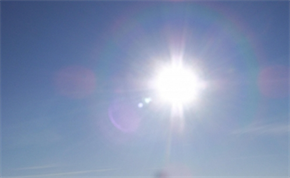As annual temperatures in the UK and across the world continue to rise and there are more frequent and severe heat waves, learning from international experience becomes more important.
Early in the summer of 2021, in British Columbia, Canada they experienced an unprecedented extreme heat event that tragically led to the deaths of hundreds of people. Temperatures were at least 15°C higher than usual across the entire province, but some areas and some people were affected more than others.
Most of the people who died were older (excess deaths occurred mainly in the over 50’s) or were people who had health conditions that put them at higher risk. Most of the deaths occurred inside private homes that got dangerously hot.
Risk factors for heat illness
Those at particular risk of heat related illness include:
- People 65 years of age or older who may not compensate for heat stress efficiently and are less likely to sense and respond to high temperatures
- People who live alone or who are socially isolated
- People with pre-existing health conditions such as diabetes, dementia, heart disease or respiratory disease
- People on certain medications such as diuretics (“water tablets”)
- People with mental illness such as schizophrenia, depression
- People with substance-use disorders including alcohol
- People with physical or mental disabilities, including limited mobility or cognitive impairment
- People who are pregnant
- Infants and children under 5 years of age who rely on adults to make sure their environments are comfortable and provide them with enough fluids
- People who do intensive physical activity or work in a hot environment
- Increased body mass index (BMI)
- Poor physical fitness
Please note many people with severe mental illness (such as schizophrenia or bipolar disorder) and some patients living with dementia or a brain injury have “Anosognosia”, which is an inability to recognize that they are unwell. This has led to a higher risk of deterioration for people in these categories during an extreme heat event and safety-netting is even more important.
Guidance
If a patient is pyrexial it could be due to heat illness (see JRCALC Heat Illness Guideline) Always consider other causes of pyrexia before assuming it is due to heat illness.
For patients with suspected heat illness:
Do not administer antipyretics e.g. paracetamol, unless the patient requires analgesia
For patients taking diuretics (‘water tablets’) or those advised by their doctor to limit the amount they drink:
Advise the patient to drink a glass of water (200mls) every hour – approximately 2.4 litres per day.
Please note that over 3 litres of fluid per day is likely to worsen heart failure symptoms.
If a patient has been drinking excessive volumes of water, consider their sodium level may be very low. Severe hyponatraemia (very low sodium) may present with vomiting, drowsiness, headache, ataxia, seizures, coma, or even cardiorespiratory arrest (due to cerebral oedema and raised intracranial pressure).
It is not well known that:
- Some patients with high temperatures may not be sweating
- Fans cannot effectively reduce body temperatures or prevent heat-related illness in people at risk. Fans should not be relied on as the only cooling method during an Extreme Heat
- Sugary or alcoholic drinks cause If it feels hotter inside than outside, it is better to move outside into any shaded area if you can.
Safety netting and considerations for if a patient can be managed at home
- Do they have a cooler room that they can stay or even sleep in?
- Could they go and stay with someone who has a cooler home or with fans or air conditioning? Fans are only to help move cooler air indoors during the late evening and early morning hours, they should not be the only method relied on to cool a patient.
- Advise them to close their curtains and blinds
- Check they have access to water or something cool to drink
- Indoor temperatures peak later in the evening than outdoor Give advice to keep doors and windows closed between the hottest hours of the day to trap cooler air inside. Open them later in the day to allow cooler air in, and use fans (including kitchen and bathroom exhaust fans) to move cooler air through the house
- Advise patient to sleep with a wet sheet or in a wet shirt, and to take cool baths or showers to draw heat from the body
- Give advice to drink plenty of water, regardless of whether they feel thirsty. If they are getting worse they should remove clothes and apply wet material e.g. a sheet or T-shirt to the skin and re-contact health systems through nhs.uk (for people aged 5 and over only) or by phone
- Give them advice on checking the colour of their urine (see infographic below)
- Advise that if it feels hotter inside than outside, it is better to move outside into any shaded area if they can
- Focus on INDOOR advice, rather than outdoor advice for these higher risk
Published 19th July 2022
